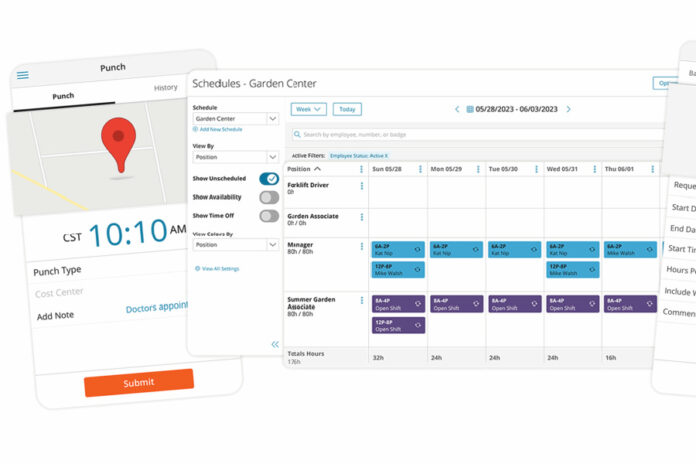
Paylocity launched new features including an updated mobile app and enhancements to its generative AI and LMS, as well as a premium product to provide market pay data to aid employers in developing fair and compliant pay strategies.
The new Market Pay product provides data in real time, within the Paylocity platform. The module allows customers to accurately evaluate pay for specific roles, as well as comply with pay equity and job posting requirements in multiple states.
With Market Pay, Paylocity’s pursuing a growing market. The company said at least three-quarters of organizations with 40 – 250 employees, and 80% of businesses with more than 500 workers, use market data to justify their compensation decisions.
The company also extended its generative AI capabilities to help create “compelling and compliant” job descriptions. The newly streamlined process is designed to save time as it supports talent acquisition efforts.
“Paylocity has purposefully built AI and machine learning into our platform to not only improve efficiency, but also improve effectiveness,” said Co-CEO Steve Beauchamp. Learning as it goes, he said, the system uses more data to make real-time recommendations that can have a direct impact on business outcomes.
Employee-Centric Scheduling
Another new premium feature, Advanced Scheduling, allows businesses to build schedules for multiple locations, and includes real-time insights to help ensure coverage and minimize overtime by anticipating the hours needed for future shifts. It also enables companies to identify employees who are approaching or have already reached overtime thresholds.
From the employee’s point of view, Advanced Scheduling’s mobile app offers workers more influence over their schedules by allowing them to swap shifts, claim open shifts and manage their availability, all without manager involvement.
Meanwhile, Paylocity’s LMS now allows employees to create training content – including videos – and easily share it via the platform’s Community function. Once customers assign a course, the LMS takes over learning management by issuing notices and reminders, tracking progress and reporting on course completion. Learning information is tied back to each employee’s individual record, allowing managers to track learning as they would any other task in the system.
In January, Paylocity integrated Cloudsnap, a solution for joining disparate business applications, into its broader platform. At the time, Paylocity said its goal was to create a source for employee data that can be leveraged across an entire organization.
Image: Paylocity













